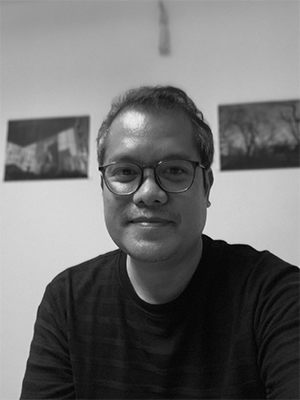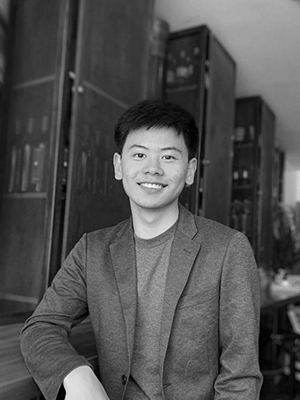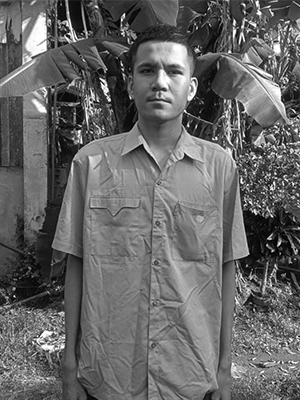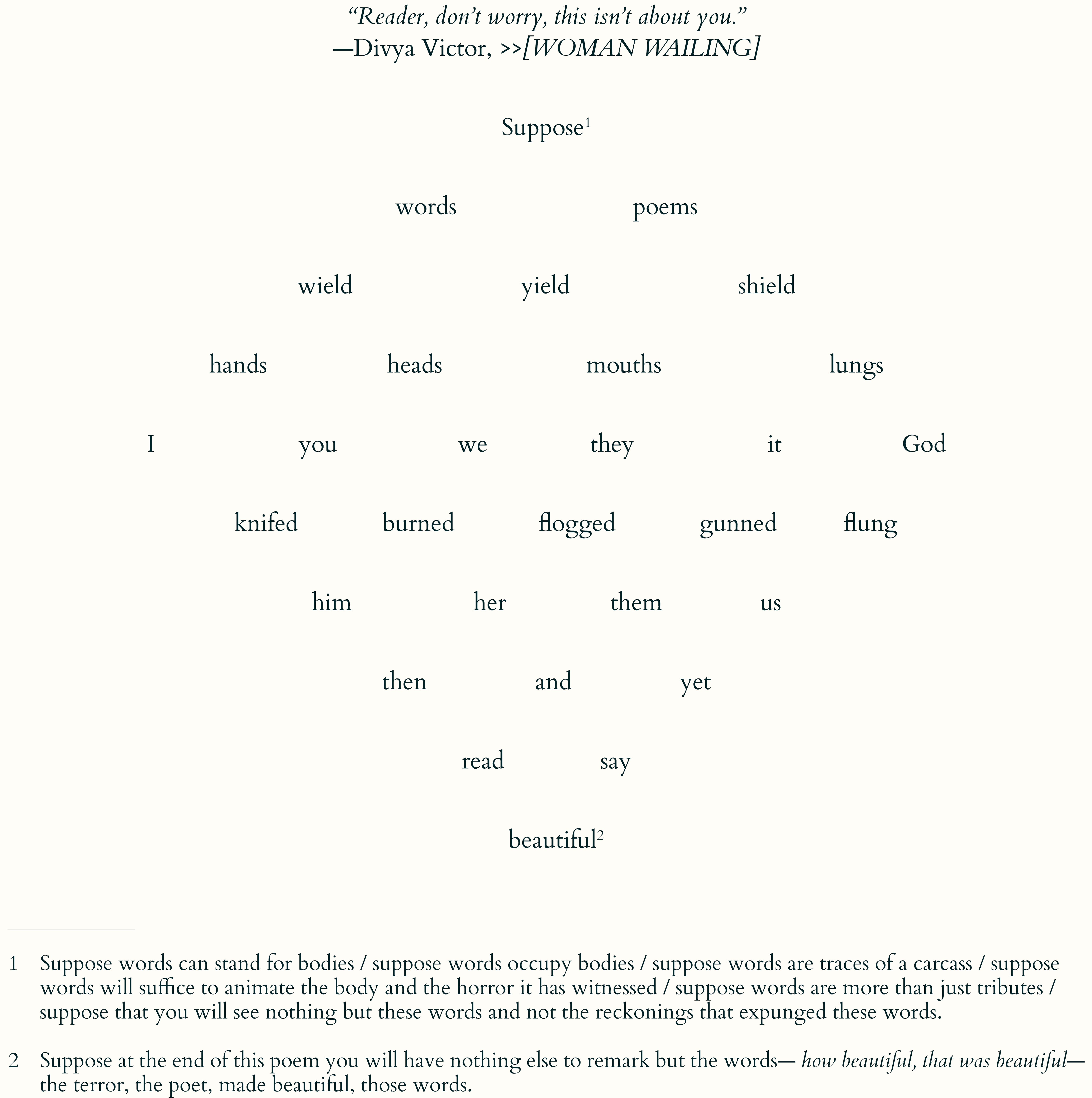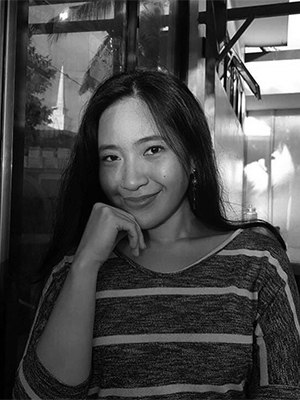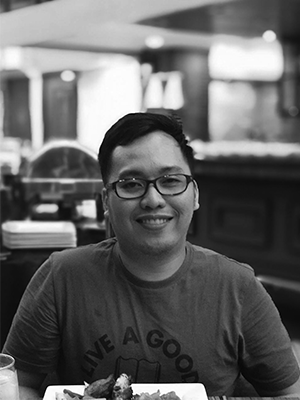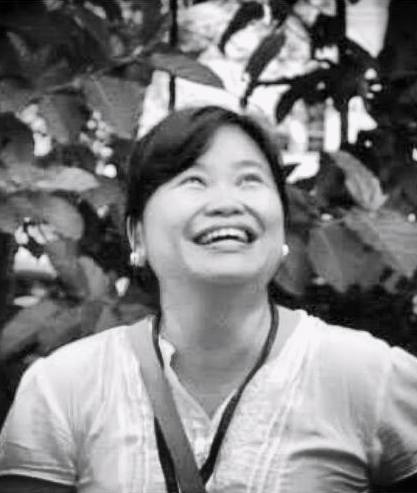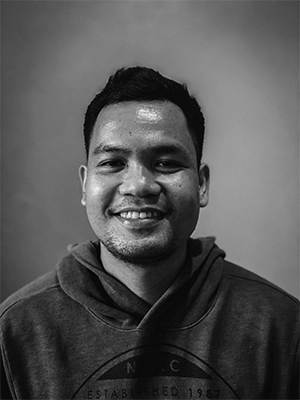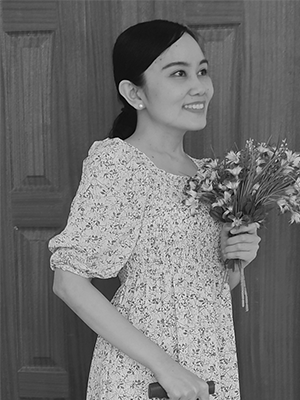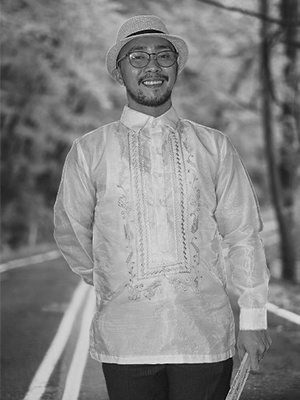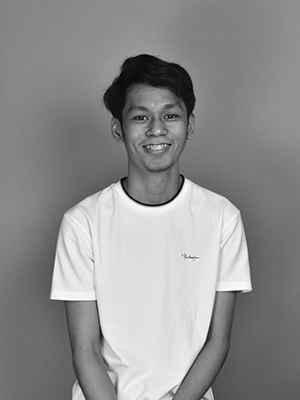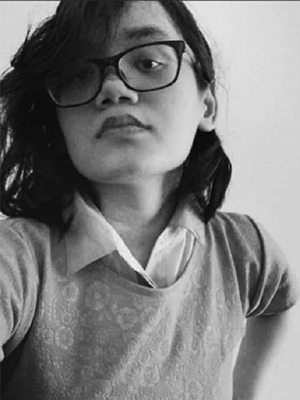apat ka binalaybay sa baraha
Alas
Kon tinutuyo mo nga matul-id
ang dagway sang Dios Makaako,
sa paghiram sang santo rosaryo
indi ako magpasalig. Ilabi na gid
sa pagluhod-luhod sa mayami
nga salog sang hulot pangadian ukon
sa paghimutad sa pinanid sang balaan
nga kasulatan. Sa pagbinag-binag,
usoya ang dalan padulong sa lamatyan.
Kag didto maglingkod sa kanto sang latuk
nga pusoyan. Balasaha, itagtag, pintaha,
ang baraha. Kag sa mation-tion samtang
nagakalaging imo mamulalongan:
Alas ang Ginoo nga ginatuohan.
Labaw sa gahum sang korona apang
nahamtang sa ubos sang pinakakubos.
Ang una nga amo man ulihi,
ang sugod nga paghinapos.
Isipay Buho
Kay nagdiga.
Kay nagbátò.
Nag-isipay.
Isa-gatos ang búhò.
Isa, duha, tatlo,
apat, lima, anum, pito…
Apang wala sang namayad.
Ang siyete siyentos namano.
Kay liwat nga nag-isip
nga ang baraha nagakulob:
Isa, duha, tatlo,
apat, lima, anum, pito…
Ang buho
sa lawas sang namago nga nagtinguha
malagyo.
Solitaryo
Balasaha ika-pito,
Agud ang baraha
Masamo maayo.
Dayon ihutik sa hangin
Ang imo ginapangabay
Ang imo petisyon, tinutuyo.
Ikatad ang baraha,
Pito ka kubay sa lamesa
Kag magsugod tagtag
Sántò sa tudlo
Sang mga mal-am.
Padayon tubtub
Mabahin-bahin mo
Ang mga duag kag bulak,
Hari gikan alas.
Makamutik ang baraha
Kon ginadaya, gani
Kon indi makalampuwas,
Ginhawa, himusa kag
Magbalasa antes
Magsugod liwan.
Kay indi pagsalig
Sa buenas ukon malas,
Kondi pagpadayon,
Pagpadayon,
Ang kinaadman
Nga sa aton ginaaman.
Pagsulondan sa Pagbangka
Una, pito ka sulit
Ang id-id nga balasa.
Ikaduha, magpanagtagtag
Sa imo pirme una.
Ikatlo, paulihi kalaging,
Pakulba ang imo baraha.
Ikaapat, inanay
Kon magpinta.
Ikaanum, magtuki
Sang bahig indi paggulpiha.
Ikapito, tuluka ang lungon.
Angay sang kamatayon,
Walay ginatuman
Nga pagsulondan
Ang baraha.
